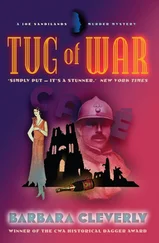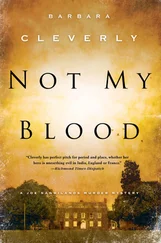Barbara Cleverly - Strange Images of Death
Здесь есть возможность читать онлайн «Barbara Cleverly - Strange Images of Death» весь текст электронной книги совершенно бесплатно (целиком полную версию без сокращений). В некоторых случаях можно слушать аудио, скачать через торрент в формате fb2 и присутствует краткое содержание. Год выпуска: 0100, Издательство: Soho Press, Жанр: Исторический детектив, на английском языке. Описание произведения, (предисловие) а так же отзывы посетителей доступны на портале библиотеки ЛибКат.
- Название:Strange Images of Death
- Автор:
- Издательство:Soho Press
- Жанр:
- Год:0100
- ISBN:нет данных
- Рейтинг книги:3 / 5. Голосов: 1
-
Избранное:Добавить в избранное
- Отзывы:
-
Ваша оценка:
- 60
- 1
- 2
- 3
- 4
- 5
Strange Images of Death: краткое содержание, описание и аннотация
Предлагаем к чтению аннотацию, описание, краткое содержание или предисловие (зависит от того, что написал сам автор книги «Strange Images of Death»). Если вы не нашли необходимую информацию о книге — напишите в комментариях, мы постараемся отыскать её.
Strange Images of Death — читать онлайн бесплатно полную книгу (весь текст) целиком
Ниже представлен текст книги, разбитый по страницам. Система сохранения места последней прочитанной страницы, позволяет с удобством читать онлайн бесплатно книгу «Strange Images of Death», без необходимости каждый раз заново искать на чём Вы остановились. Поставьте закладку, и сможете в любой момент перейти на страницу, на которой закончили чтение.
Интервал:
Закладка:
From the cause of death the doctor moved on to general comments on the state of the body. He confirmed that toxicology tests had revealed the victim to have no traces of drugs or poisons in her system.
‘No cocaine?’
‘That’s right. None. She was fit and healthy and completely compos mentis at the time of her death. And you will need to know that there was no trace of sexual attack. There had been sexual activity some hours before, we can assume the previous night, but nothing unnatural. No sign of violence.’
Joe sensed they were coming to the end of the interview. ‘Anything else?’ he asked.
‘Yes. It occurred to me there was something else I perhaps ought to look at …’
Joe smiled to hear the casual warning. Pathologists, in his experience, liked to do this. The few words added as an ‘oh, by the way,’ at the end of a discussion so often shredded his theories or set him off on a completely different tack.
‘She was pregnant. Ah! That you didn’t know! Yes. Undetectable to the eye of the general public, but there was a foetus. Two months … nine weeks … thereabouts.’
‘Sounds a bit ridiculous but-would she have been aware?’ said Joe.
‘Oh, yes. I think we could bet on that! She was no ingénue. She’d know the symptoms, I’m sure. And she would have missed two monthly indications. She’d probably gone off her food. There was very little in her stomach …’
Joe stood in silence, dumfounded and deep in thought.
Dr Lemaître was clearly used to such behaviour from policemen on receipt of his devastating remarks and fell into a companionable study of the body. The clock on the wall of the morgue ticked loudly twenty times before one of the men moved.
Joe went to stand by Estelle’s head. Silently, he moved a wisp of damp hair from her forehead, yearning for a last waft of her perfume to rise and torment him. He smelled nothing but carbolic. Lightly he touched her cold cheek with his hand. He leaned over and, not caring whether he was overheard, whispered: ‘I’ve heard you, Miss Smeeth. Loud and clear. I know why you were killed. I think I know how. I just need now to find out which one of three men you trusted, hated you enough to plunge a dagger into that generous heart. And I will find him. Soon.’
Chapter Twenty-Eight
Joe left his car at the commissariat and walked in towards the centre of the small city. This morning he was going to try to ignore its beauty and its tempting cafés; he was going to ignore the warnings of a stomach that had missed breakfast and was rumbling at every waft of coffee-roasting and bread-baking from the shop fronts he passed along the boulevard.
He struck out with the river Rhône on his left, heading for the tight swirl of medieval buildings still standing inside the city walls. He steered by the white towers of the Pope’s Palace rising, with a careless disregard for symmetry, to lord it over the huddle of pink-tiled roofs. This was the point of his day. The visit to the morgue, though it had in the end proved more fruitful than he could have expected, was a cover for his next assignation.
He found what he was looking for in a back street near the Place de l’Horloge and entered the double-fronted premises to the sound of a jangling bell over his head through a door marked ‘For Public Access’. The offices of La Voix de la Méditerranée were not exactly buzzing. He reminded himself that this was August and the middle of the holiday season. The papers were still being produced but probably working with a skeleton staff. On the high mahogany counter a printed notice told members of the public that this was the place to present your news (at any time), your personal advertisements (before twelve noon), or request to consult the archive (between ten and eleven, Wednesday to Saturday). Clearly browsing was not encouraged.
Joe checked his watch. He was five minutes into the narrow time slot. He rang the counter bell for attention.
This came two minutes and three rings of increasing volume later and was offered by a distracted and peaky-looking youth in a long green apron. Joe sighed. The skeleton staff. After the exchange of greetings he announced cordially: ‘I’d like to consult your archive, please.’ He presented his credentials. ‘This is a police request for access to certain of your back numbers.’
‘Year, please?’ The boy had barely glanced at his warrant card.
‘Between 1906 and 1911 …’
‘Sorry, sir. You’ll have to be more precise.’ The unhelpfulness turned to truculence. ‘I can’t bring all that lot out. They’re down in the cellar! And they’re bound, you know. By the month. That’s … that’s …’
‘Seventy-two bound volumes,’ said Joe. ‘At least it would be if I wanted every month. But let me finish. I want to see the papers printed for the second week of the month of July. That’s six folders only. And look-I’d like some advice from one of your editorial staff-someone over the age of forty for choice.’
‘Not possible, I’m afraid. There’s only Monsieur Rozier in and he won’t come. He’s busy.’
Joe leaned across the counter. He took from his inside pocket the letter of introduction from Jacquemin. With his thumb carefully placed over the ‘Dear Dr Lemaître’, he passed it under the eyes of the clerk. The impressive letter heading and the swirling signature brought a spark of interest.
Joe heaped kindling on the spark. ‘Recognize this signature? Well, why would you? But you’ll recognize the man who scrawled it next week when his heroic features appear on the front cover of Le Petit Journal . Commissaire Jacquemin is in town, my lad. Yes, The Implacable One himself! And he’s flushing out the villains and personally filling them full of lead. Three dead in Marseille over the weekend. You’ll read about it. He requires co-operation.’
The boy hurried away with a mumbled ‘Leave it with me, sir … I’ll see what I can do …’
Rozier took less time to appear than the counter clerk. The bespectacled, moustached man in shirt-sleeves came bustling in, mild annoyance losing the fight with extreme curiosity. He examined Joe’s warrant card, talking as he did so. ‘Rozier. Deputy editor. I’m forty-four. Hair’s going grey but I still have my teeth. Good enough for you? What’s all this shit about Jacquemin? And what’s an English policeman doing in Avignon running errands for that pitiless old prick?’
‘Long story. A peek at some of your papers, accompanied by some insights from a man who knows the local area, would help me to solve a fifteen-year-old mystery, reunite a pair of young lovers driven apart by the war and restore a lost child to its mother.’
‘Is that all? You drag me from my fat heifer sales report for this?’
The hard eyes gleamed and Joe decided that, though the man showed no sign of having a heart, at least he had a sense of humour. It was a start.
‘Michel says 1906 to 1911, week two of July,’ Rozier went on briskly. ‘I’ve asked him to haul them up and wheel them in. If you’d like to take a seat at the reading table over there I’ll come round and scan them with you. Know what you’re looking for, or are we just browsing?’
‘I know exactly. A name. The name of a village.’ Joe presented his problem as an enquiry for a missing person. He added his invention of the question of an inheritance which seemed to go down well with listeners.
‘A girl from one of our villages … Hmm …’
Joe had gently stressed the local aspect of his problem and embroidered on the aspect of mystery.
‘Hang on a minute, I’ll call for coffee. How do you take yours? Croissant with that? I usually have one at this time of the morning.’ He yelled into the back quarters: ‘Dorine! Nip next door and tell them to make it two servings of café complet , will you? Priority!’
Читать дальшеИнтервал:
Закладка:
Похожие книги на «Strange Images of Death»
Представляем Вашему вниманию похожие книги на «Strange Images of Death» списком для выбора. Мы отобрали схожую по названию и смыслу литературу в надежде предоставить читателям больше вариантов отыскать новые, интересные, ещё непрочитанные произведения.
Обсуждение, отзывы о книге «Strange Images of Death» и просто собственные мнения читателей. Оставьте ваши комментарии, напишите, что Вы думаете о произведении, его смысле или главных героях. Укажите что конкретно понравилось, а что нет, и почему Вы так считаете.












